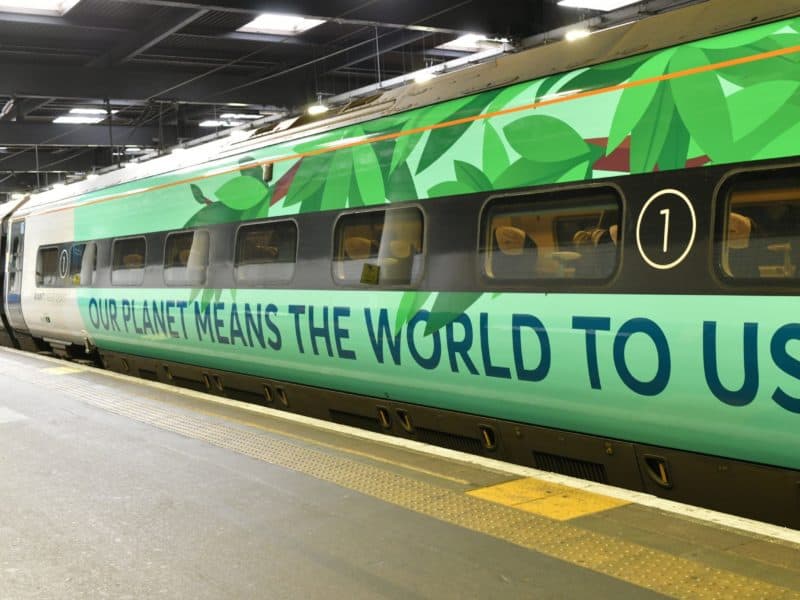
This is an initiative by Youth for Sustainable travel in collaboration with Eurostar. They chartered a complete train from Amsterdam, Rotterdam and Brussels to COP26 in Glasgow.
Acknowledged as an already ‘green’ form of transport, rail played a minor role in the proceedings. Rail can continue to play an important role in decarbonising transportation by displacing more carbon-intense alternatives. However, to reach its potential as one of the key solutions to transport’s enduring climate problem, the rail industry must strive to further reduce Green House Gas emissions and position itself as an accessible and sustainable option. However, it should be pointed out that there is a lot more that the rail industry can do to further ‘burnish its image’.
- Vivarail https://vivarail.co.uk/a-week-of-firsts-at-cop26/demonstrated a battery powered train crossing the iconic Forth bridge, to promote an alternative to polluting diesel traction. As only 34% of Britain’s railways are electrified this could substantially reduce emissions from diesel trains.
- Vivarail are also working with Network rail to develop solutions around using trains powered by hydrogen. It can also repurpose Diesel trains that .are not yet life expired. Further developments could include hybrid Battery power and improved charging technology
With low emission rates and existing green technology, rail should play a pivotal role in global climate conversations, even before taking account of the scope to further decarbonise the sector. Key to bringing the industry more centrally into that dialogue will be further progress on electrification of rail networks. Meanwhile, development of hydrogen and battery-powered trains will make passenger travel more affordable and convenient. The industry must embrace forms of private financing to ensure rail fulfils its huge potential to decarbonise economies, transport and daily life. It cannot rely on public finance, now overstretched by the effects of the Covid 19 pandemic.
